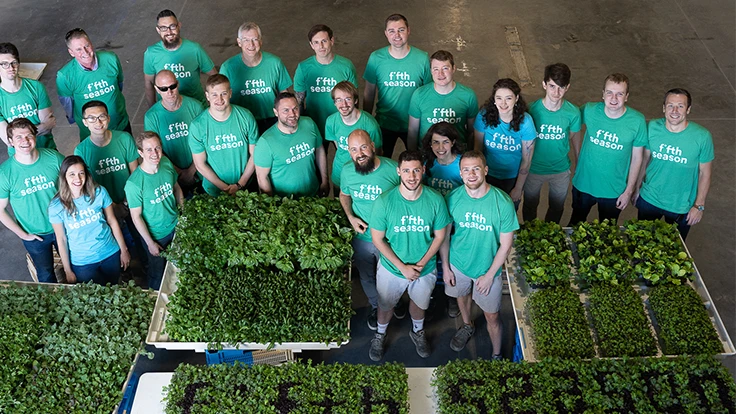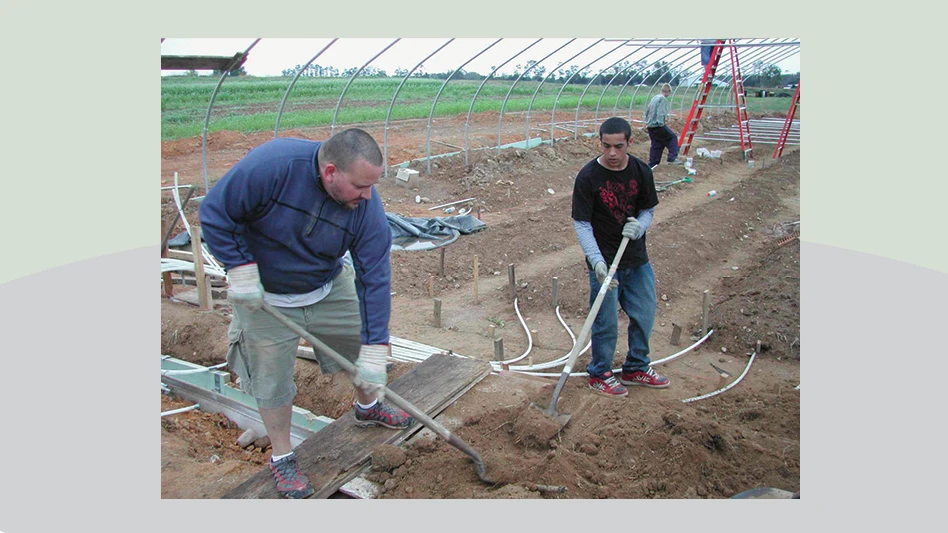
Photo courtesy of Fifth Season
Fifth Season, an indoor farming company, announced plans for its first indoor vertical farm, which will open in early 2020 in Braddock, an historic steel town near Pittsburgh.
Austin Webb, Fifth Season's co-founder and CEO, said the company's 60,000-square-foot Braddock farm will set a new vertical agriculture standard for efficient, safe and sustainable production of pesticide-free leafy greens and herbs in urban communities.
"The goal through our first three years of development was to prove we could bring fresh food to urban customers at prices competitive with conventionally grown produce," Webb said, per the press release,
"We have developed fully integrated, proprietary technology to completely control the hydroponic growing process and optimize key factors such as energy, labor usage and crop output," Webb added. "The result is a vertical farm design that has over twice the efficiency and grow capacity of traditional vertical farms. Our unprecedented low costs set a new standard for the future of the industry."
Webb said the Braddock farm’s ideal growing environment will produce over 500,000 pounds of lettuce, spinach, kale, arugula and herbs from its 25,000-square-foot grow room during the first full year of operation. The facility is partially solar-powered and requires 95 percent less water compared to traditional growing operations.
Webb said the company is planning a staged expansion in additional, similar-sized cities across the U.S.
Fifth Season, originally founded as RoBotany Ltd., is a consumer-focused technology company that was incubated at Carnegie Mellon University's (CMU) Swartz Center for Entrepreneurship — an alliance of CMU’s business, robotics and other schools focused on fostering innovation. The company has raised over $35 million to date led by Drive Capital and other private investors with close ties to CMU. Its leadership team has deep expertise in plant science, robotics, AI and systems engineering.
Latest from Produce Grower
- BioTherm launches Ultimate Grower Climate Control System
- Happy holidays from the GIE Media Horticulture Group!
- Invest in silver
- VIDEO: Growing media for strawberries grown under different production systems
- Building the ‘Dream Greenhouse’
- Quality Horticulture announces expansion into U.S. from Canada
- Baptisia australis
- Breaking new ground





